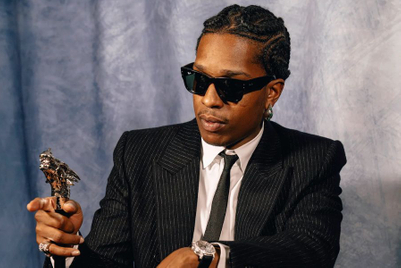
Influenced by male celebrities, more and more Chinese male fashionistas are integrating women’s clothes into their wardrobe due to their more fashion-forward designs and attention to detail.
Genderless clothes are among the top lifestyle shifts in young China today.
To leverage this opportunity, brands must embrace non-binary approaches while also considering the growing gap between youth culture trends and China’s official stance on masculinity.
In the realm of gender-fluid fashion, women wearing men’s clothes have always been more dominant than their opposite. Drawn to their oversized fits, women have long been using “boyfriend” jeans and shirts to add chic to their wardrobe.
But today, the growing number of Chinese male fashionistas wearing women’s clothes is reversing the narrative. From celebrities to grassroots influencers, many Chinese men are increasingly shopping for womenswear.
Actor Wang Yibo, who was announced as Chanel’s brand ambassador this June, epitomizes the genderless chic becoming popular in China’s fashion community. Referred to as a man that “incarnated Chanel (人间香奈儿),” Wang has worn the brand’s iconic womenswear in TV shows and on magazine covers to exalt a fashion-forward look that defies gendered expectations. For example, he famously paired a pink Chanel jacket with a mini purse in the show Street Dance of China and wore a tweed jacket to a red carpet event held by Tencent.

Not only did Wang’s outfits normalize womenswear for men, but they have also inspired women, who find his looks surprisingly cool for a classical brand like Chanel.
Wang is just one of the many male Chinese idols setting a new normal for men’s fashion. Tiffany and Armani Beauty’s spokesperson Jackson Yee wore a Chanel women’s tweed overall to wear to the Grammy’s in 2018. Then, actor Li Xian, the spokesperson of Ermenegildo Zegna, attended a 2019 Vogue party in a Chanel coat from its 2018 womenswear collection. Cai Xukun, Prada’s muse and ambassador since 2019, frequently wears the brand’s women’s suits to red carpet events. And on Weibo, the hashtag #MaleCelebrityInWomenwear is an active thread, with over 150 million views and 320 thousand posts.

Real-life fashionistas have been catching up with the movement, too. Jeremy Yang (@jeremy-young) is an emerging blogger on Little Red Book, and he is not shy about adding womenswear to his day-to-day fashion. “It is much easier to find well-design and interesting pieces in womenswear than menswear,” he said to Jing Daily. “The cut is better, details are more well-thought-out, and there are just more choices overall.”
Far from the social stigmas that often associate men wearing womenswear with drag queens, Jeremy’s intentional purchases of women’s clothes were strictly driven by personal style. “I am drawn to brands that design for the sake of good design,” he added. “Since most brands still put more effort into womenswear nowadays, it is natural for me to look at womenswear for inspiration.”
Earlier this year, Little Red Book released its report 2021 Lifestyle Trend Keywords, which ranked genderless fashion as one of the top ten themes on the platform. According to the data, views of genderless dressing posts had a 182-percent increase year-on-year during 2020, while the number of users posting about the theme grew by 83 percent.
In China, emerging domestic companies like the clothing label Bosie and the beauty brand HASHTAG are among those leveraging sales of genderless products to a younger generation that is increasingly rejecting gender binaries. By removing gendered marketing, these labels have created a sense of novelty for a market that has yet to see many non-binary offerings.
For luxury and fashion brands outside China, understanding the large gap between the country’s official stance on gender and youth culture ideals can be tricky. Since 2018, the Chinese state media has repeatedly advocated for traditional gender role beliefs by criticizing K-Pop’s negative influence on the increasing femininization of its young men. In February this year, China’s education ministry issued a notice that called for schools to promote education that can “cultivate male students’ masculinity.”
Yet despite this official and aggressive push for conservative values, China’s younger generations kept finding new ways to keep a countermovement alive and burgeoning. Over the past three years, the country’s underground ballroom culture and LGBTQ+ community have continued to grow in tandem with tightened ideological controls in the public sphere.
While leveraging womenswear opportunities remains difficult due to challenges like sizing and making campaigns, brands should not dismiss the chance to speak to male Chinese fashionistas through a non-categorical fashion message. More image representations of men in non-binary styles and more products that challenge conventional gender norms are all ways to connect more deeply with this community. After all, what this generation ultimately wants is the space to experiment and play. And brands that prove they are too cool for traditional social categorization will gain an edge.



.jpg&h=334&w=500&q=100&v=20250320&c=1)


.png&h=334&w=500&q=100&v=20250320&c=1)




.png&h=334&w=500&q=100&v=20250320&c=1)







.png&h=268&w=401&q=100&v=20250320&c=1)
